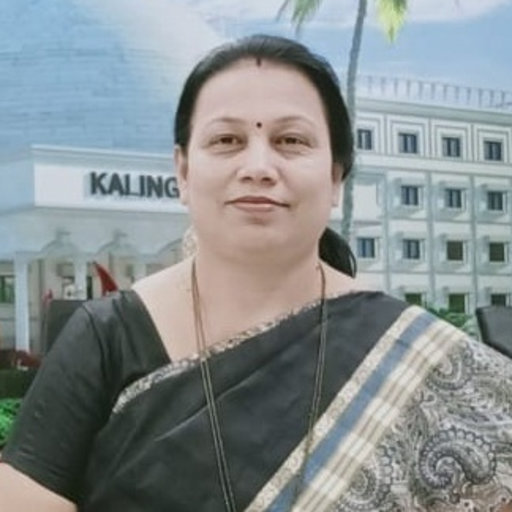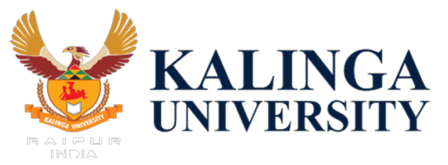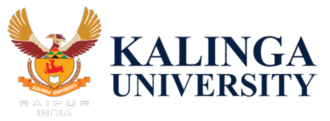Best Practices
November 13, 2022 2023-02-24 16:55Best Practices
Best Practices
Extension, Outreach and
Community Development
One of the notable best practices of Kalinga University has been extension and outreach. The University’s philosophy of education emphasises reaching out to marginalised groups with a special focus on research and extension. These are important manifestations of the University’s curriculum and faculty’s expertise. The institution firmly believes in the application of classroom training and instruction to the outside community to improve their quality of life which has been achieved by conducting numerous extension and outreach activities at both UG and PG levels in the form of non-credit as well as credit-based instruction, technical assistance, applied research, distance instruction and technology transfer.
Chhattisgarh Youth Entrepreneurship Summit This unique platform for dynamic learning was provided to the youth of nearby villages to make new connections to help take their expertise to new heights. The innovative companies that are leading the way with cutting-edge technologies, processes and services presented the prospects of growth of youth in their company, followed by ten minutes of questions from participants and business strategists. The university strives to create an environment that empowers innovators, particularly the youth, to take their ideas to the next level.
Adoption of Five Villages
The University has adopted five villages (Kotni, Palaud, Kuhera, Parsada, Tandul) for secure access of the youth of these villages to employment/self-employment and engage themselves in pursuit of higher education. An awareness of clean drinking water, health and hygiene was given to the communities of the villages. The University has developed smart classrooms in the schools of all these five villages.
Health and Hygiene Awareness
Kalinga University works to make quality healthcare accessible to its communities. Towards this, it creates healthcare facilities and also works at the community level for improved health. With the conviction that preventive healthcare is key to good health, it stresses health education and awareness in the villages adopted.
Swachcha Bharat Abhiyan
The University contributes to the Swachh Bharat Mission of the Government by supporting the community and individual and institutional sanitation facilities in the nearby villages. By inviting people to participate in the drive, the university tried to create a sense of responsibility among the people through this Clean India Movement.
Tree Plantation Maha-abhiyan
Considering the manifold benefits of trees and to lessen the effects of global warming, Kalinga University generally organises tree plantation drives. Over the last one four years, Kalinga University has planted more than 20,000 plants in and around the university campus. Our young volunteers, especially the team of NSS, are actively involved in organising tree plantation campaigns at the university.
Legal Aid Camps
The department of Law organises legal aid camps in the nearby villages. The prime objective of this camp is to provide legal clinics to the general public who are unable to approach the doors of justice. Under this legal counselling program, the litigant fellows were conducted without any fees. The prime objective of the legal aid camp is to promote legal education and protect the common interest of the general citizen. And the mool mantra of this camp is ‘no one can be deprived of natural justice.
Evidence of Success
Kalinga University received the “Auropath Global Award 2019” in the category of best in social and community services/ impact as a result of exhaustive participation in the community. The youth entrepreneur summit empowered the students to pitch their ideas and build partnerships that help transform society. This summit served as a vital link between governments and the private sector. The adoption of the villages led to increasing employment in the village community and getting the best education for the youth of the villages. Instead of travelling long distances for higher education, they got quality education in their zone. Many camps were organised in these villages, and tremendous development was observed in terms of health, hygiene, cleanliness, environment, and women and child education. The residents of these villages became aware of the legal procedures. Thus the extension activities done by the university led to the holistic development of the nearby community.
Women's Empowerment and Education
At Kalinga University, the women workforce constitutes more than 44% of the total strength in terms of student strength, teaching and non-teaching staff and key positions in universities administration.
Objectives
- To maintain and strengthen the status of women by creating awareness of women’s rights and ensuring the safety and dignity of female students, teachers, and staff.
- To place female students in all advanced degree programs.
- To promote the rights, well-being and professional status of women and work towards an inclusive society.
- To create greater balance in the educational framework.
- To promote women in the educational fields where they are generally under-represented.
- To empower women to take challenges and promote academic excellence.
- To encourage the participation of SC/ST/OBC women candidates in higher education
The Context
Kalinga University is one of the leading universities in India for imparting quality higher education. It caters to the diverse needs of students, society, and the country. The University believes that women’s education and empowerment are the indicators of the development of modern India, as empowering women force this will ensure the holistic and long-term development of the society in all spheres.
The University thus provides employment opportunities to women and scholarships to all the girl students who enrol for any program in the University with the aim of increasing and improving access to high-quality education for women candidates, thereby ensuring women’s education and empowerment.
The Practice
The University has a policy of providing scholarships to all the girl students enrolling in any of the courses of the University. The University is located in a rural area where it has become a blessing for the girl students of nearby villages for whom commuting to far-off places for higher education becomes difficult. Thus the University strives to promote women’s education. Apart from this, the university has employed female employees who are handling many key positions in the university in academics as well as administration.
The university has women representation in a workforce that includes the Chief Finance Officer, Director IQAC, Dean, Students Welfare, Dean – Department of Science, Dean – Department of Education, Head – Human Resources, Director – Incubation Centre, In charge, In charge Young Indians, In charge NSS, Incharge Business Lab, In charge Entrepreneurship Cell, and In charge Library, thus ensuring empowerment of women. The University, as one of its extension and outreach programs, organises “Beti Bachao Beti Padhao” campaign that aims to spread information about infanticide, child marriage and, most importantly, girl-child education, Govt. Policies and plans for the upliftment of girls and also creates an awareness of women’s empowerment in nearby society.
Problems encountered
Managing scholarship programs are, at times, tedious and time-consuming for administrators. When it comes to the process of matching the right applicant with the right award based on their academic merit, experience, and interests, there are a few challenges on the way. Making a list of all students in the department and entering them into spreadsheets to check through them for their eligibility becomes time-consuming.
The women employees at times face challenges like balancing between paid employment and family care, work stress-related health issues, tolerance of discrimination, mental pressure and safety problems. Prejudiced and stereotyped thinking faced by working women. The university keeps on taking sincere measures towards gender sensitisation to reduce these issues.
Evidence of Success
Kalinga University presently has around 35% of girls students in all the courses of the university. The graph of girl student admission has increased in the last five years and is eventually increasing every year. The university employs more than 44% of women faculty members and non-teaching staff in administration. The university was recognised in the state for this effort and was also awarded for exemplary work in its social and professional work during the national seminar on the Hon’ble Prime Minister’s mission “Beti Bachao, Beti Padhao Jan Andolan” held on 2nd March 2017 at the town hall, Mahasamund, Chhattisgarh.
Problems Encountered and Resources Required
Apart from an admission cell, a separate scholarship cell is required with more number of trained staff who will exclusively work on managing scholarship data. When a dedicated cell starts working for the same, the chances of error and consumption of time will definitely reduce. Few women employees were reluctant to balance their academic, professional and domestic work. The university is trying to attach support staff with them so that they can balance the same and also provide professional counsellors to female students.
Other information relevant for adopting/ implementing the Best Practice
The university is in the process of developing a scholarship cell with a dedicated staff. The university is also on its way to strengthening its ERP system so that the university can go through a smooth and easy process of entering and maintaining scholarship data. The University is also on its way to execute properly the Gender Sensitization Plan and also to enhance the number of programmes related to Women’s Empowerment by involving student and staff volunteers to execute and organise events related to Women’s Empowerment and education so that our country can witness the equal representation of women in all the walks of life in the times to come.

Dr. Asha Ambhaikar
In Charge Women Cell & DSW
asha.ambhaikar@kalingauniversity.ac.in
+91-9229655211

